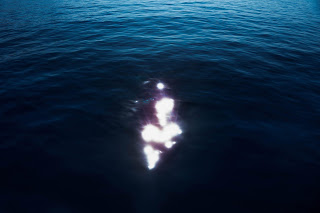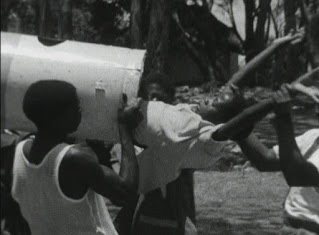The Hubert Bals Fund (HBF) of International Film Festival Rotterdam (IFFR) has chosen ten feature film projects to each be awarded a grant of €10,000 under its Script and Project Development Support scheme. A committee of international industry experts selected the projects from more than 760 applications. Tamara Tatishvili, incoming Head of the Hubert Bals Fund: "In these complex times, when uncertainty seems to reign, the significance of impactful storytelling becomes even more pronounced. In the midst of a fiercely competitive round and guided by the diligent efforts of the HBF selection committees, I am delighted to extend a hand of companionship to the creative teams that’s about more than just financial backing".
Vanja Kaludjercic, IFFR Festival Director: "The Hubert Bals Fund remains a steadfast ally for emerging talent and a vital tool in championing storytelling worldwide. It's truly encouraging to find both new faces and familiar filmmakers who've previously showcased their work at the festival among our selections. We take immense pride in supporting their creative journeys". Two projects from the African continent are supported: Afronauts, about the true but forgotten events of the Zambian space programme, is the first feature by Ghanaian filmmaker Nuotama Frances Bodomo; and Senegalese-French filmmaker Katy Léna Ndiaye turns from the past to the shocking present with her debut fiction feature Lënd, in which rising waters threaten the lives of the residents of a fishing neighbourhood.
The Sea Is Calm Tonight is self-taught Vietnamese filmmaker Le Bao's follow-up to the Berlinale Encounters jury prize-winning Taste (2021). Mimicking the flows between the more than seven thousand islands that make up the Philippines, Martika Ramirez Escobar follows Leonor Will Never Die (2022) with Daughters of the Sea. Ana Elena Tejera’s Corte Culebra addresses the ancestral trauma of the communities displaced on Gatun Lake, the artificial heart of the Panama Canal. Another of the filmmakers in the selection to have screened their work at IFFR is Shengze Zhu, whose Present.Perfect. competed in the Tiger Competition at IFFR 2019. Her fiction debut A Distant House Smokes on the Horizon will explore the violence of the everyday with the recent phenomenon of juvenile murder cases in China.
Lipika Singh Darai’s short Night and Fear was in competition at IFFR 2023, and her feature debut Birdwoman will be produced in the language of the Ho indigenous community from Odisha in India. Egyptian filmmaker Nada Riyadh’s feature fiction debut Moonblind will be rooted in an arena of traditional Egyptian healing rituals. With I Recognized Him by His Hands, Omer Capoglu presents a humorous but heartfelt take on the Turkish culture around martyrdom. Fantasma Neon sees Brazilian filmmaker Leonardo Martinelli take on the gig economy in musical style, protesting against the anonymising and casualisation of labour by making the delivery drivers in his film the loudest they can be, singing and dancing in the streets. The film is the follow-up to the short of the same name.
Source/images: IFFR









